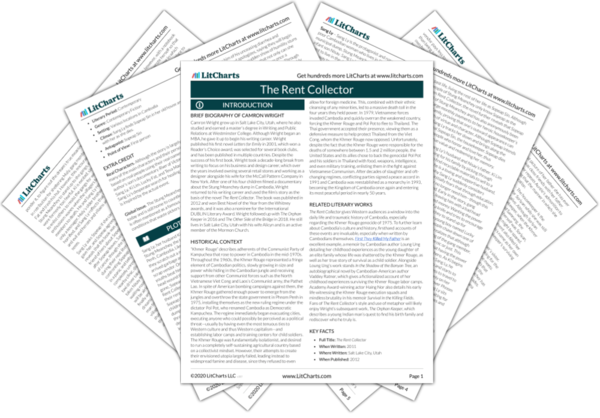Sopeap implies that the poem is indeed literature, and that poetry is a form of literature that predates writing itself. This furthers the argument that anything can be literature, even if it is not written down. This viewpoint defies the conventional concept of literature as written words contained in books or volumes, usually written by wealthy or sophisticated people long ago. Sopeap’s statement that she will soon leave Stung Meanchey is a veiled reference to her illness and explicitly foreshadows her death.


